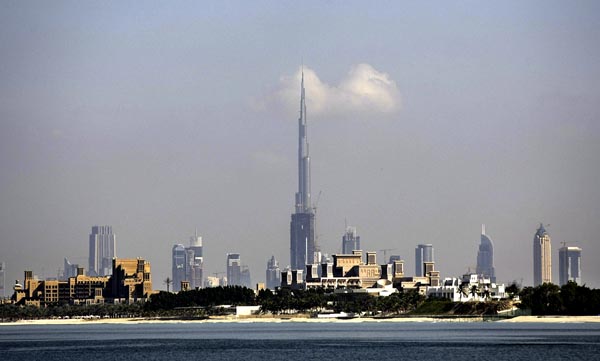Online portals feel jobs in the construction and real estate market will trickle in after March-April, 2014.
One of the biggest highlights of Dubai’s successful bid for Expo 2020 is the prediction of creation of over 275,000 jobs in various sectors across the economy.
However, online job portals have stated that an impending ‘hiring boom in a sustainable manner’ could be seen only post 2016-17. However, after the decline in the job market in 2012-13, jobs in the construction and real estate market will trickle in after March-April, 2014.
According to the Monster.com employment index, the year 2013 was a relatively bleak year in the jobs market in comparison to 2012.
However, despite the negative growth in certain sectors, sites like Bayt.com and Monster.com are extremely positive about job creation in the coming years.
“When we look at 2013 from the Gulf region perspective, the region saw a decline year-on-year, versus 2012, till about August. September was the first month we saw a single digit growth. However, the good news is that the growth sustained post September, after which we saw a double digit growth in the regional market,” said Sanjay Modi managing director at Monster.com for India, Middle East and South East Asia, in an interview with Khaleej Times.
Modi added that the leaders in the 2013 employment index survey across GCC were Saudi Arabia, Qatar, and Kuwait. “The UAE started 2013 with positive growth figures in January and February of about 11 per cent. But post February till December, it continued to decline at the rate of 16 per cent per annum,” added Modi.
The UAE is largely a service economy, and as of September 2013 most sectors, including real estate, construction, engineering, IT and Telecom, production, manufacturing, and automotive industries took a beating by recording negative growth figures. Banking financial sector, hospitality, education, and healthcare are industries that recorded a positive annual growth. Hospitality went up 13 per cent and healthcare recorded an increase of about eight percent in hiring. “But industries like education and healthcare are basically recession proof,” added Modi.
Effects of Expo 2020
Most online job portals are very positive about the effects on the UAE job market post the expo win. Suhail Masri vice-president, sales at bayt.com said: “Winning the bid will certainly very positively and expediently affect the job market in the UAE and we have already seen an uptick in activity in recent months. The hiring pattern might change across industries that will be most affected by the bid.”
Modi said: “In 2014, we will see a kick start on the construction side. Stalled projects will come back to life. Once that starts to happen, jobs will start trickling in. Our estimates as per the index are that job prospects will be definitely better compared to 2013.”
However, experts suggest that to make the employment trends in the country sustainable, businesses must set up operations. “Realistically, the 2020 impact will be seen only in 2016-17, and a full impact will be seen only a year before the Expo. Construction, aviation, retail, logistics, and engineering will be visible, say at about 2016,” added Modi.
Masri said that the tourism sector is also looking to gain from Expo 2020. “The Expo 2020 will among other advantages lead to an increase in the number of building developments undertaken in the country in order to create the appropriate infrastructure, as well as create jobs in the tourism sector. Other industries that will surely benefit are the construction and electricity industries.” He added: “These industries will mostly profit in the periods leading up to the events, whereas the tourist-related industries will see most gains during the actual events. In addition, the telecommunication sector, along with IT and transportation, will profit as well from job creation and higher demand from international visitors.”
Salary hikes?
In times to come, there will be increases in employee’s salary according to Modi, but that will be purely based on the performances of the employees. “But there will be an interesting competition in fixed pay increase versus, the performance link pay. Companies are adopting an approach where employees will be given a small stake in the firm, based on the performance on the employee,” said Modi. Performance pay, according to Modi helps companies manage their cost intelligently.
In terms of perceptions among UAE professionals, 28 per cent of UAE professionals surveyed on the Bayt.com Mena Salary Survey (May 2013) said that salaries are ‘increasing marginally’, with an additional 28 per cent stating they are ‘increasing moderately’, and 19 per cent state that they are staying the same. Factors causing salaries in the UAE to increase are considered to be inflation and the rising cost of living (54 per cent), growth in opportunities and economic growth (39 per cent), and good corporate performance (17 per cent). Reasons for salaries not increasing are seen to be the poor economy (29 per cent), poor corporate performance and profitability (23 per cent), and more top talent than available jobs (23 per cent). In terms of their current salary, a fifth of UAE respondents (20 per cent) receive their basic salary only, while 65 per cent receive their basic salary plus benefits.



